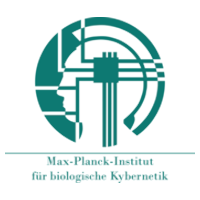
05 Nov Computation and Cognition Tübingen Summer Internship
Computation and Cognition Tübingen Summer Internship
CaCTüS Internship
The sciences of biological and artificial intelligence are rapidly growing research fields that need enthusiastic minds with a keen interest in solving challenging questions. The Max Planck Institutes for Biological Cybernetics and Intelligent Systems and the Tübingen AI Center offer up to 10 students at the Bachelor or Master level paid three-months internships during the summer of 2023. Successful applicants will work with top-level scientists on research projects spanning machine learning, electrical engineering, theoretical neuroscience, behavioral experiments and data analysis. The CaCTüS Internship is aimed at young scientists who are held back by personal, financial, regional or societal constraints to help them develop their research careers and gain access to first-class education. The programme is designed to foster inclusion, diversity, equity and access to excellent scientific facilities. We specifically encourage applications from students living in low- and middle-income countries which are currently underrepresented in our research community.
Applications are now open and will close again on 04 December 2022
Our programme
The CaCTüS Internship programme aims to boost the careers of talented students who experience significant difficulties in their pursuit of higher education and scientific development. Interns will have the chance to come to Tübingen or Stuttgart for a paid, three-months internship. The programme provides access to first-class scientific institutions, hands-on research experience and a scientific network in one of Germany’s leading locations for biological and artificial intelligence research.
During the internship, students will work on research projects under the supervision of experienced scientists. In addition to gaining work experience, interns will have the chance to connect with other researchers on campus.
Another important aspect of the programme are the many complementary events that are offered to interns. These include a large range of soft-skill courses (e.g. on giving scientific presentations, application training, and similar), career counselling sessions, trips to other research institutes in the area, and frequent social gatherings with other scientists. At the end of the internship, students will have the chance to present their work to the scientific community on campus. We thank the Hanrieder Foundation for Excellence for making possible the supporting programme of CaCTüS through the Hanrieder Impact Fund.
Interns can rely on extensive personal and administrative support prior to and during the internship through the coordination office, their supervisors and other scientists.
Eligibility
The CaCTüS Internship specifically addresses motivated students who are constrained by personal, financial, regional or societal issues that negatively affect their future education.
Internships are open for students who:
- have not started their PhD degree by the time of the internship
- students that have not yet finished their Bachelor’s degree must have completed at least 4 semesters (i.e. 2 years) of their studies at the time of application
- have a strong academic record
- have a background in a field relevant to the projects proposed (e.g. computer science, mathematics, physics, engineering, psychology, cognitive science, neuroscience or any other related field)
- have a good command of the English language
- can express their motivation
- have strong reasons why their access to first-class higher education is constrained
- are available for the entire duration of 90 days between 1st July and 30th September 2023 (note: due to visa regulations you cannot extend your stay in the country beyond 90 days)
- are undertaking a voluntary internship (note: we cannot host interns that require course credits as part of their course requirement)
For more information, please read our FAQ page.
The Max Planck Society recognizes the positive value of diversity, promotes equality and challenges discrimination. We welcome applications from all suitably-qualified candidates, irrespective of gender, disability, marital or parental status, racial, ethnic or social origin, color, religion, belief, or sexual orientation. We explicitly encourage women to apply. Applicants with severe disabilities will be given preferential consideration if their suitability, qualifications and professional performance are otherwise essentially equal. Furthermore, with this programme we also explicitly encourage applications from students living in low- and middle-income countries which are currently underrepresented in science.
Application
Applications will be submitted via our application portal. You will need to fill out personal information as well as submit the following documents:
- CV (max. 2 pages)
- Motivational letter (see form below)
- General motivation to pursue a career in science and to participate in this internship
- Description of previous project
- Motivation for up to three specific projects sorted by preference
- Statement on factors that may constrain the applicant’s access to higher education in an internationally renowned institution, e.g. financial, regional or personal circumstances
- Optional: one reference letter
- Transcripts from all your university studies (if no official English translation is available from your university, please provide one yourself in the first instance), and degree certificates (if available)
Please click here to apply.


Sorry, the comment form is closed at this time.